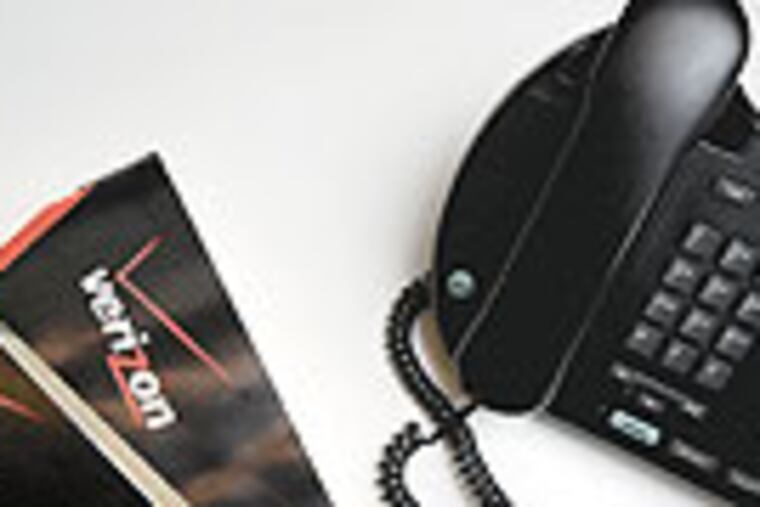Pa. allows Verizon to quit distributing residential phone books
The relentless march of time and technology claimed another victim - the residential phone book. Joining New York, New Jersey, Delaware, and Florida, Pennsylvania regulators told phone giant Verizon Communication Inc. that it was OK to stop distributing free residential white pages. The delivery of phone books began in Pennsylvania in 1903.

The relentless march of time and technology claimed another victim - the residential phone book.
Joining New York, New Jersey, Delaware, and Florida, Pennsylvania regulators told phone giant Verizon Communication Inc. that it was OK to stop distributing free residential white pages. The delivery of phone books began in Pennsylvania in 1903.
The company petitioned the Pennsylvania Public Utility Commission in September for the change, and the regulatory agency approved the request in a 5-0 vote. Notices should appear in customers' bills in December, and the change is effective Jan. 1.
For those who may think this is the end of the phone-book era, though, that would be premature. Verizon's directory publisher, SuperMedia L.L.C., will continue to publish advertising-supported phone books with business and government listings, company officials said Thursday.
In addition, Verizon said, its millions of Pennsylvania phone customers could still obtain a residential white-pages book next year if they call 1-800-888-8448 and specifically ask for one. If they do not want a paper book, they can ask for a CD-ROM with residential listings.
Verizon does not expect many people to take up the offer, though. In its petition to the PUC, Verizon said that, in one state where AT&T offers residential white pages upon request, just 2 percent of customers asked for them.
Verizon cast the move as environmentally friendly and one that could save about 2,200 tons of low-grade paper used to print the books. It says it distributes 12 million books in Pennsylvania.
"The more paperless the better," said Terry Samuels, of Media. She said she still had the last phone book, but probably has not looked up a number in about a year. "I use the computer for everything."
The fact is that startlingly few find residential phone books useful anymore. According to a Gallup survey in 2008, only 11 percent of households reported looking up a residential phone number in one, Verizon said.
Verizon spokesman Lee J. Gierczynski said Thursday that the company was "responding to consumers' evolving preferences for information," and he noted that people could use the website www.verizon.com/whitepages to find residential numbers.
Verizon spun off its direct-publishing operation into an independent company, now called SuperMedia, in 2006. Andrew Shane, a spokesman for SuperMedia, said people still seemed to be interested in the business listings in the printed books. SuperMedia has tried to differentiate its business directory from others that land at homes annually with a "consumer confidence program."